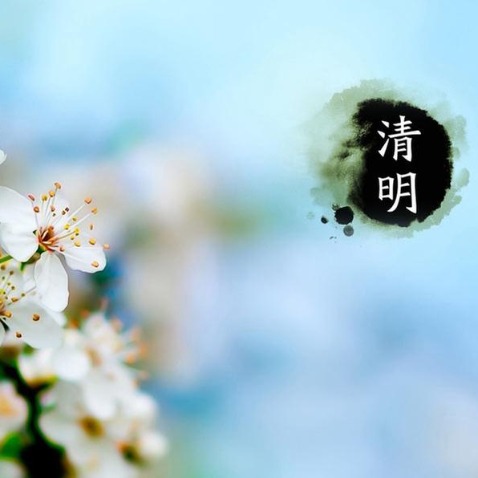
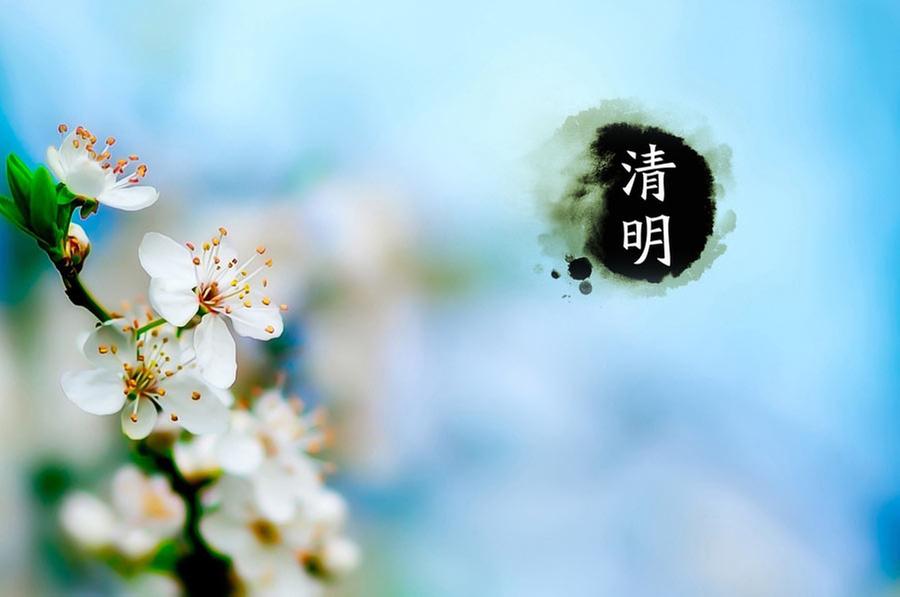
Qingming Festival(清明节,qīng míng jié), or Tomb-Sweeping Day, is the fifth solar term of a year, known as "Pure Brightness" in English. It is also the only solar term on Chinese lunar calendar(中国农历,zhōng guó nóng lì)that is also an important traditional festival.
As a day for both Tomb Sweeping(扫墓祭祖,sǎo mù jì zǔ)and Spring Outing(春游,chūn yóu), it is a time when the admiration for life (生命的赞美,shēng mìng de zàn měi )mixed with sorrow of death(死亡的悲伤,sǐ wáng de bēi shāng ).
It usually falls around April 5, a time when the spring is in full bloom, and yet it is also one of the most important days to pay tribute to the deceased family members and relatives. But the two was separated at the very beginning, when the Hanshi Festival(寒食节,hán shí jié), or the "Cold Food Festival" was still being widely marked.
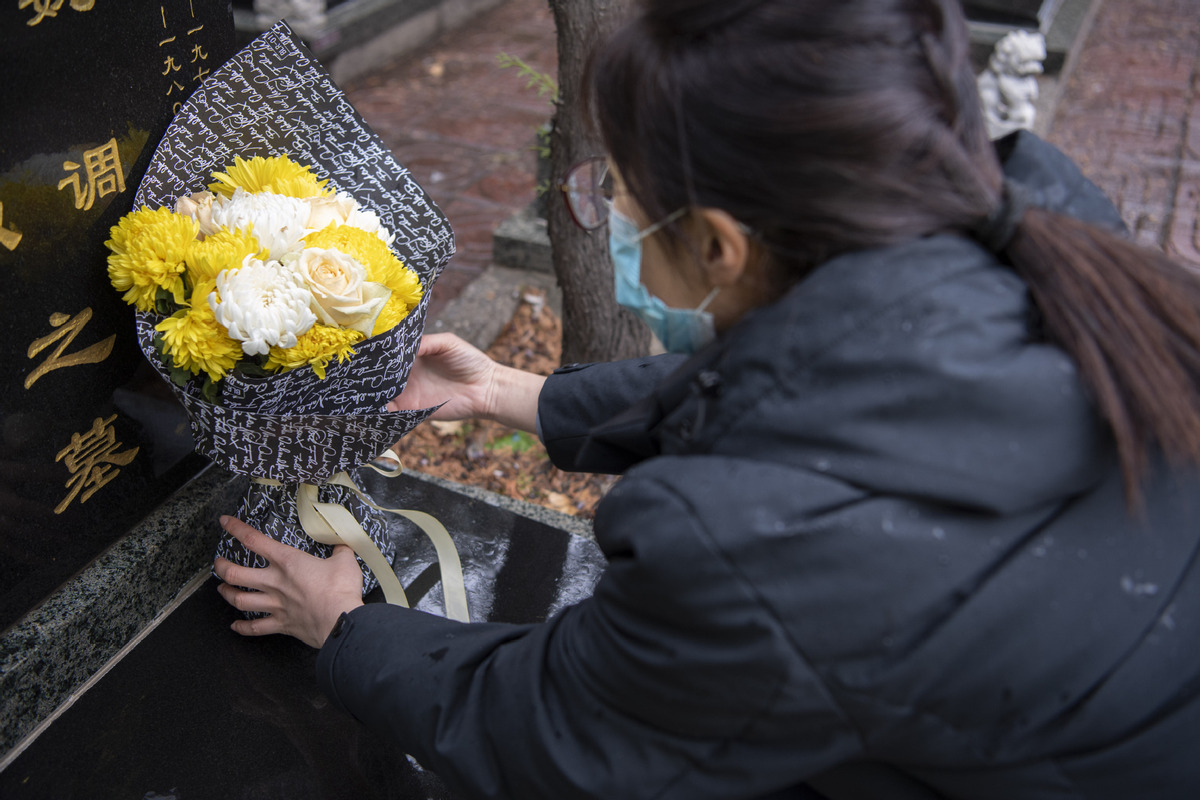
The combination of Qingming and Hanshi(寒食,hán shí)
At the very beginning, Qingming was only a name for one of the 24 solar terms(二十四节气,èr shí sì jié qì), just like the others. It is not until its combination with the "Hanshi Festival" when it became a famous festive occasion.
The Hanshi Festival was designated to pay tribute to a loyal statesman during the Spring and Autumn Period (770-476 B.C.) who died in a fire. The Chinese people did not cook on the day of the Hanshi Festival and ate only cold food. The Tomb-Sweeping rituals were also derived from it.
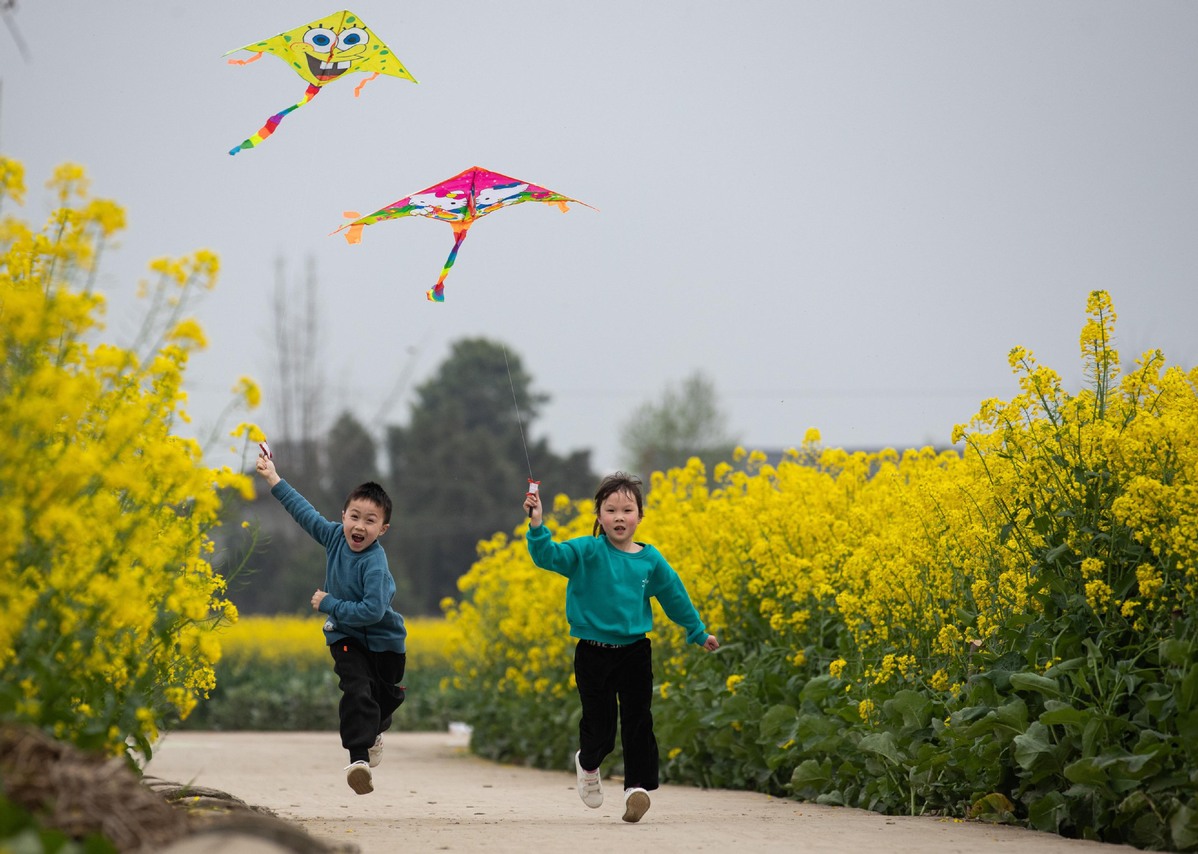
A day of mixed emotions and traditions
The most centric tradition of the Qingming Festival is tomb sweeping(扫墓祭祖,sǎo mù jì zǔ), a way of paying tribute to the dead relatives and worshiping the ancestors. It is an essential ritual since ancient dynasties. During the Tang Dynasty (618-907), for instance, the ruler arranged four to seven days' holidays for government officials so that they could return to their hometowns and sweep the tombs.
The Qingming Festival has been a statutory holiday(法定节假日,fǎ dìng jié jiǎ rì) since 2008, with off days increased to three in 2009. It is also marked as one of the four most important Chinese festivals along with the Dragon Boat(端午节,duān wǔ jié), the Mid-Autumn(中秋节,zhōng qiū jié), and Spring Festival(春节,chūn jié).
Instead of burning paper money(烧纸钱,shāo zhǐ qián)and incense(上香,shàng xiāng )for the dead, people in many areas inherited the ancient tradition of avoiding fire on the day, offering fruits and desserts(供奉水果、糕点,gòng fèng shuǐ guǒ 、gāo diǎn)only. In recent years, as the awareness for environment protection raised, local governments also encourage people to choose more eco-friendly ways to pay tributes.
But paying tribute is not the only theme for the Qingming Festival. The day could be spent in sorrow as well as joy, as the Spring Outing(踏青郊游,tà qīng jiāo yóu)is another tradition.
The Qingming Festival usually sees the most tender and amiable days of the spring. With the gentle breeze and the flowers in full bloom, it is the best time to enjoy fresh air. The Spring Outing on Qingming Festival has been inspiring many artists throughout the Chinese history, and the descriptions could be found in literary works, paintings, and other forms of art.
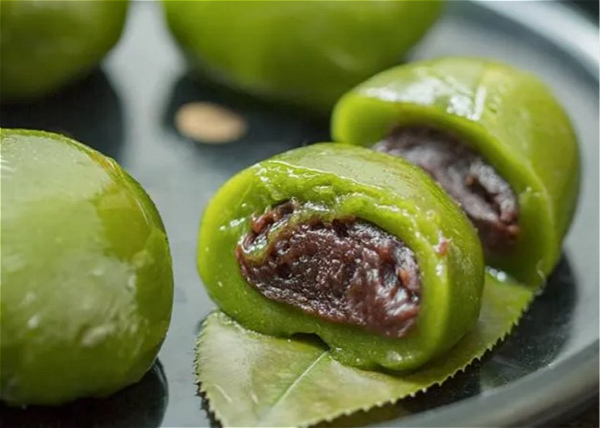
The tradition of eating cold food(吃寒食,chī hán shí )
Although the Hanshi Festival is no longer widely marked, in many areas, people has maintained the habit of eating cold food. Qingtuan(青团,qīng tuán), made of glutinous rice(糯米,nuò mǐ )and red beans(红豆,hóng dòu), is among the most popular.
In many southern areas, Qingtuan would appear on the street stalls and stores weeks before the Qingming Festival. It is, therefore, called "the dessert for Qingming Festival". The glutinous rice is steamed and pounded with green mugworts or bromegrass juice, and then filled with sweet red bean paste.
It is the most favorite dessert for many.
In east China's Shandong Province, people eat boiled eggs, cold sorghum rice or cold pancakes scrolled with fresh vegetables. In Zhejiang Province, people like to eat snails growing in the rivers and throwing the shells onto rooftops.
Despite all the seeming contradictions and mixture of the Qingming Festival, many say it is a reflection of the Chinese aestheticism.
Source:CGTN
If you have any problems with this article, please contact us at app@chinadaily.com.cn and we'll immediately get back to you.